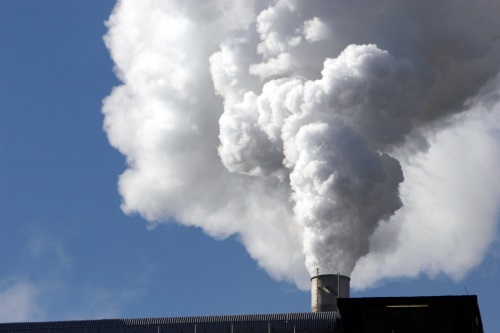Future maritime fuels with a small carbon footprint seen from a life cycle perspective

In April 2018, the International Maritime Organization (IMO) adopted at its 72th meeting in the Maritime Environmental Protection Committee (MEPC 72) the historical strategy for CO2 and other GHG´s from shipping. The strategy includes concrete reduction targets for the sector and requires shipping to reduce CO2 emissions per transport work, as an average across international shipping, by at least 40% by 2030, pursuing efforts towards 70% by 2050, compared to 2008.
The future CO2 reduction requirements imply significant changes in fuel supply resulting in fuels which totally emit less CO2 than to day. This means that the total carbon footprint from well to propeller has to be taken into account in the coming legislation in IMO and EU. Leading experts form the universities and the industry will present their views on this exciting future.
______
Programme
16:00 - 16:05 Welcome
by Hans Otto Kristensen, HOK Marineconsult ApS
16:05 - 16:25 Update on the GHG work in IMO by Palle Kristensen, Danish Maritime Authority
A short introduction to the Initial IMO strategy on reduction of GHG emissions from shipping and the way forward. The 2050 goal for GHG emissions from shipping requires that alternative maritime fuels with small or no GHG footprint are available within the next decade.
16:25 - 17:00 Technical barriers for application of advanced motorfuels by Jesper Schramm, professor at DTU
Heavy Fuel Oil has been the chosen fuel for marine engines for many years. In order to reduce GHG emissions, it has become more relevant to implementmore expensive, alternative and some more advanced motor fuels.However, engine application of these fuels is associated with technical difficulties, and one should notice these issues beforechoosing a fuel for a certain purpose. In the presentation, a number of relevant fuels are considered in relation to engine technology, and the recent development is seen in perspective of the work of IEA’s Technology Collaboration Programme for Advanced Motor Fuels.
17:00 – 17:35 Alternative fuels by Claus Felby, professor at KU
Facing decarbonization, the maritime sector has a need for new fuels and likely also new propulsion systems. The fuel and technology mix of the future is likely to include electrification and biofuels while other technologies such as hydrogen and electrofuels still requires technology and infrastructure development. This presentation will describe the different fuel technologies, their potential and their compatibility with current engine technology and supply infrastructure.
17:35 - 18:05 Refreshments
18:05 – 18.40 Bio-methane and electro-methane by Henrik Wenzel, professor at SDU
Conventional biofuels are facing challenges of low conversion efficiency and/or too high land and biomass demand if scaled to be a global solution. A new bio-methane pathway is, however, available showing comparative system-level advantages including a negative carbon footprint and no land demand. Bio-catalysis for the methanation of biogas-CO2 with hydrogen into an electro-methane has further perspectives and is considered a close-to-market maritime fuel solution with several technologies operating at demonstration scale and a new even more promising technology on the way. In either case, the methane can be converted to an LNG fuel or to a longer chain liquid hydrocarbon fuel by further processing.
18:40 - 19:15 The use of alternative fuels in dual fuel two-stroke engines by René Sejer Laursen,MAN Energy Solutions
Over the past 6 years, MAN Energy Solutions has introduced new types of dual fuel engines that are capableof burning LNG, methanol, ethane gas and LPG. Lately, discussions have started about low carbon fuels to be used for shipping. MAN Energy Solutions is therefore looking into the use of ammonia. The presentation will describe the various dual fuel engine technologies that we offer for propulsion of merchant ships, and it will also describe the challenges that we face when developing a dual fuel engine for operation on ammonia.
19:15 – 19:50 A shipowner´s view on alternative fuels and the way ahead by John Kornerup Bang, MAERSK
____
Please remember to unregister if you change yourmind. Otherwise there will be a no-show fee of 200 DKK.